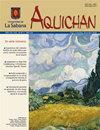芳香疗法治疗新冠肺炎环境下护理人员的精神运动症状和疲劳
Q3 Nursing
引用次数: 1
摘要
目的:比较在新冠肺炎环境中,薰衣草精油(EO)芳香疗法与EO协同疗法对护理专业人员心理-运动症状和疲劳的有效性。材料和方法:这是一项在2020年进行的准实验性试点研究。专业人员被随机分为第1组——薰衣草,第2组——薰衣草和其他EOs的协同作用。这些工具在巴西进行了验证,即自我报告问卷(SRQ-20)和疲劳图,它们在三个时刻应用:干预前、干预21天后和干预随访结束后三周。使用Pearson的x2检验或Fisher的精确检验(二分变量)和Student的t检验或Mann-Whitney检验(连续变量)对数据进行评估。结果:共有18名专业人员参与,两组的SRQ-20评分均有所改善(p<0.010),与干预前(p=0.033)相比,第1组在随访中保持了这一水平。两组专业人员的疲劳程度均显著降低(p=0.010)。但在疲劳对日常生活影响的改善方面没有观察到差异。结论:在新冠肺炎大流行期间使用芳香疗法的护理专业人员中,两组患者的精神运动症状和疲劳都有所减轻。本文章由计算机程序翻译,如有差异,请以英文原文为准。
Aromatherapy on Psycho-Emotional Symptoms and Fatigue in Nursing Professionals in the COVID-19 Setting
Objective: To compare the effectiveness of aromatherapy with lavender essential oil (EO) versus an EO synergy on psycho-emotional symptoms and fatigue of nursing professionals in the COVID-19 setting. Materials and Methods: This is a quasi-experimental pilot study conducted in 2020. The professionals were randomized in Group 1 — lavender, and in Group 2 — lavender and other EOs synergy. The instruments were validated in Brazil, namely the Self-Reporting Questionnaire (SRQ-20) and the Fatigue Pictogram, which were applied at three moments: before the intervention, after 21 days of intervention, and three weeks after the end of the intervention follow-up. The data were evaluated using Pearson’s x2 test or Fisher’s exact test (dichotomous variables) and Student’s t-test or Mann-Whitney test (continuous variables). Results: A total of 18 professionals participated, and both groups presented improved SRQ-20 scores (p < 0.010), which was maintained in the follow-up for Group 1 compared to the pre-intervention moment (p = 0.033). There was a significant decrease in fatigue in professionals in both groups (p = 0.010), but no difference was observed in the improvement of the impact of fatigue on daily life. Conclusions: There was a reduction in psycho-emotional symptoms and fatigue in nursing professionals who used aromatherapy during the COVID-19 pandemic in both groups.
求助全文
通过发布文献求助,成功后即可免费获取论文全文。
去求助
来源期刊

Aquichan
NURSING-
CiteScore
1.10
自引率
0.00%
发文量
32
审稿时长
>12 weeks
期刊介绍:
Aquichan, a journal of medical and health sciences from the field of health sciences and, more specifically, nursing, publishes articles resulting from investigations from a point of view of epistemology, evidence-based practice, chronic care, promotion and prevention. The articles are for the academic and scientific community, both in Colombia and abroad.
The journal accepts original, previously unpublished papers in Spanish, English, and Portuguese, which are the product of a research or a review and which are not being evaluated by other scientific journals, either in print or electronic form.
 求助内容:
求助内容: 应助结果提醒方式:
应助结果提醒方式:


